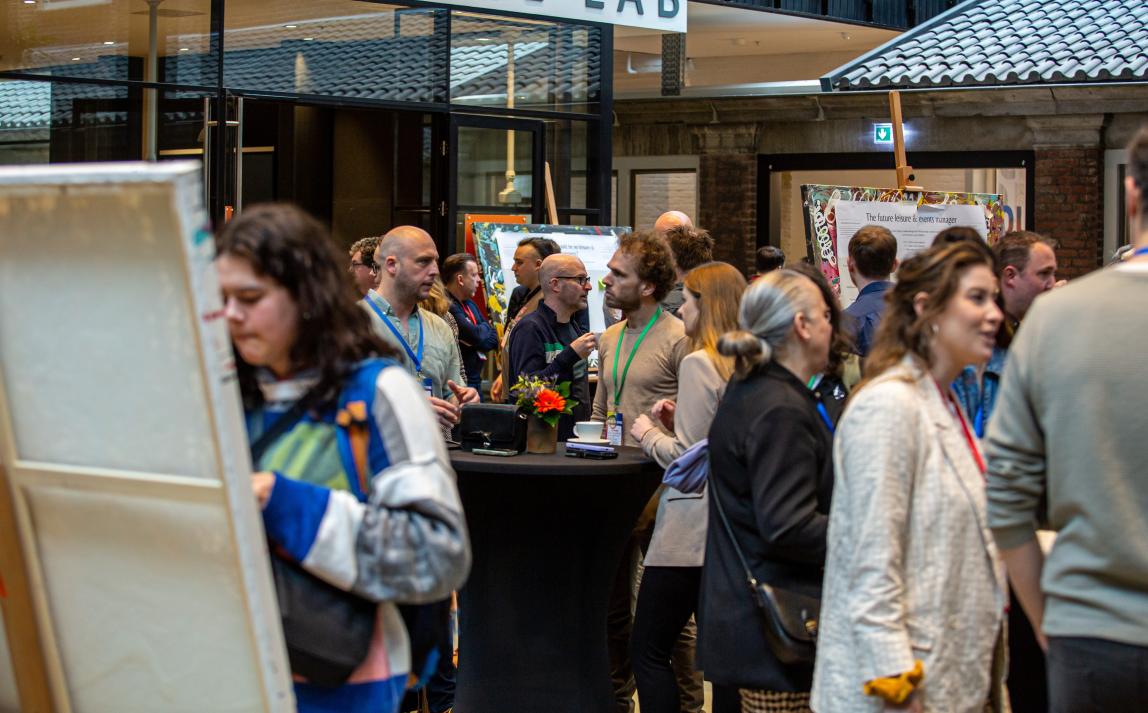
Leisure professionals as change-makers
02/28/2024 - 15:45
- Uncover
Author: Wendy de Jongh is a lecturer in Event Management at Inholland University of Applied Sciences.
The world is experiencing a rapid transformation in urban development, which has led to the emergence of new design approaches such as placemaking and experience design. These processes have become crucial components in creating spaces that are not only functional but also socially and culturally significant. Whereas spaces were previously designed for one purpose, we now see multipurpose spaces. For example, playgrounds for children used by adult boot campers. Placemaking is the process of creating quality public spaces that are welcoming, safe, and accessible to all. This concept involves collaborative efforts between community members, designers, planners, and other stakeholders to create places that reflect the unique character of a neighbourhood or city. Placemaking also focuses on enhancing public spaces by incorporating art installations, greenery, seating areas, playgrounds, and other features that make them more attractive to visitors.
Experts involved during the conference
Experience design is a relatively new concept that, as Experience Designer Nils Roemen puts it so beautifully, enables people to become participants instead of being an audience when they visit a place or space. By using various techniques such as storytelling, user-centered design principles, sensory experiences, gamification, and technology, Nils and his team create memorable experiences for visitors of places and events. This approach goes beyond designing physical spaces but aims to create emotional connections with visitors.
Both placemaking and experience design have significant social impacts on communities. They provide opportunities for people to connect with each other through shared experiences in public spaces. For instance, a well-designed public park can be a gathering place for families where children can play while parents catch up with their neighbours. We do not design for individuals but for communities. But what are the conditions for such a design? What values are important for a design that enables use by and serves an entire community? And can we upscale ‘small’ designs for a street or square to an entire city? Questions we asked Eva James, Designer and Lecturer in Experience Design at Inholland University of Applied Sciences. Through a co-design workshop during the conference, participants experienced that bringing together personal values leads to a great variety of elements that ultimately result in an excellent design.
Placemaking and experience design are now a significant part of the leisure industry. And although it is seen as a new development, pubs are one example of how these concepts have traditionally been applied successfully in the leisure industry. Pubs have always been an important part of social life. They serve as a communal space where people gather to eat, drink, socialise, and engage in various activities. This can lead to increased social cohesion and a sense of community belonging. Pubs also provide employment opportunities for residents and contribute to the local economy, as Olaf Ernst shared in his research into the functional impact of pubs, in Amsterdam in particular.
But there is more. Art is another area where placemaking has made significant contributions. Street art has become increasingly popular in cities as a way of transforming public spaces into vibrant cultural hubs. Street art can be used as a tool for placemaking by creating visually appealing spaces that attract visitors and stimulate their imagination. Dennis Elbers, Cultural Entrepreneur, showed us great examples of this. With his companies Graphic Matters and Blind Walls Gallery, he shared his fascination with the impact of visual culture on our lives.
Street art also has a social impact on communities by providing an outlet for artists who may not have access to traditional gallery spaces. It can also serve as a platform for political messaging, raising awareness about important issues affecting society.
Change-makers
The future of leisure will require professionals in the industry to adopt these new approaches such as placemaking and experience design principles to create engaging spaces that are socially relevant and culturally significant. Leisure professionals will need to work collaboratively with other stakeholders such as community members, designers, planners, artists, and policy-makers to create places that reflect the values and aspirations of the communities they serve. Leisure professionals can be the change-makers that build communities and great cities. It is time for us to really own our creative organisational talent in creating socially impactful places that enhance the quality of life in communities around the world.
This article has been published in Uncover Magazine - Future of Leisure.